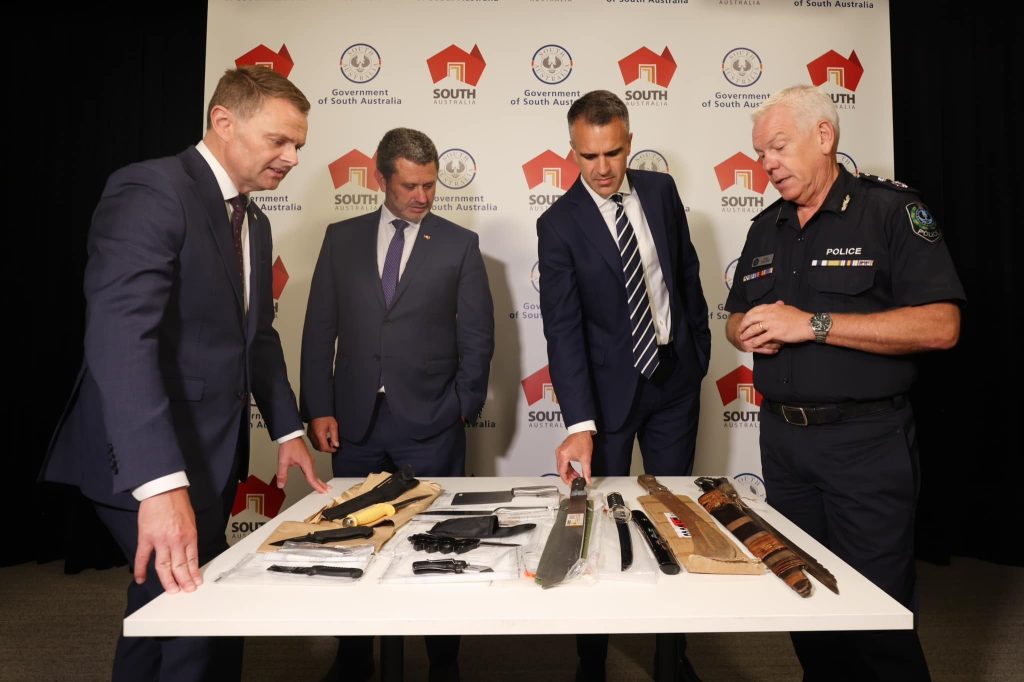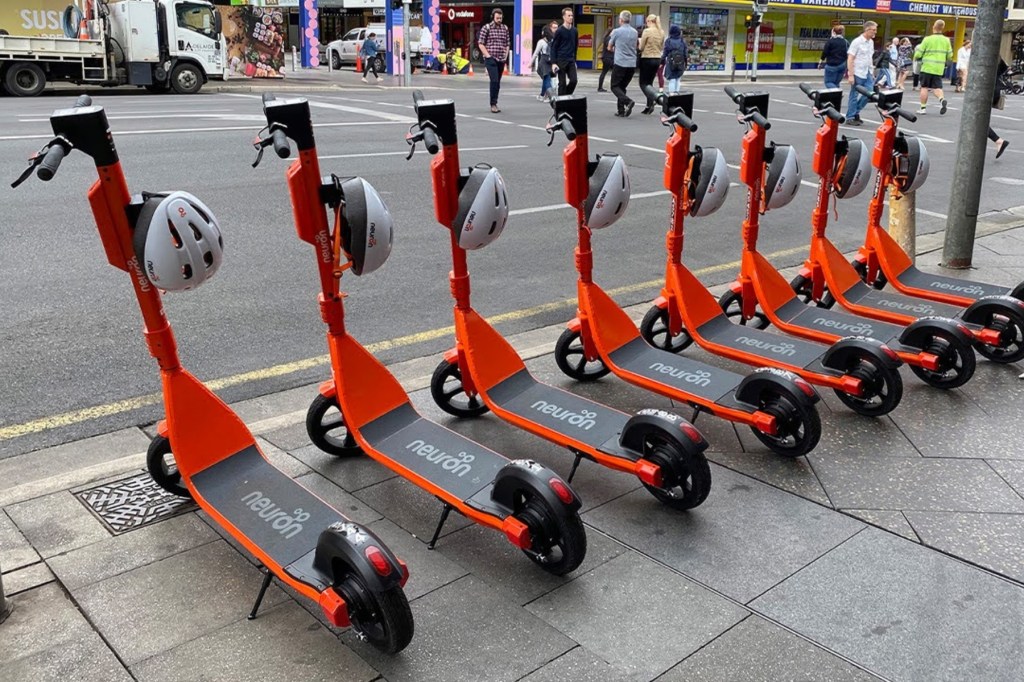Upper House agrees to ‘toughest’ knife laws in the country
The Upper House has passed what the government has called the “toughest” knife laws in the country, which will now return to the lower house to consider proposed amendments.

The Upper House yesterday passed what was labelled in a government press release earlier this month as the “toughest” knife laws in the country.
The legislation will now return to the lower house, which will consider amendments proposed in the Upper House.
The new laws come after a spate of high-profile knife crime incidents interstate, including the stabbing of a bishop in Sydney and a massacre at Bondi Junction last year.
Existing legislation under the Summary Offences Act 1953 bans knives in schools and public places and gives police the power to search people and vehicles for prohibited weapons, as well as enter premises to search for them.
According to the Australian Bureau of Statistics, in 2023, knives were used in 27 per cent (13 victims) of homicides in South Australia, while 36 per cent (208 victims) of robberies involved a knife.
The new laws give South Australian police (SAPOL) greater powers to conduct wand searches at shopping centres and public transport hubs, as well as on public transport vehicles and at licensed premises.
The reforms also ban the selling of knives to minors and make it an offence to supply a knife to a minor if there is a risk it could be used for an offence.
Additionally, stores stocking knives must display a sign stating they cannot be sold to minors, while those selling certain types of knives will be required to keep them securely locked up or tethered.
You might like
The laws also extend a ban on carrying and using knives at schools and in public spaces to cover childcare centres, preschools, kindergartens, universities and TAFE SA campuses.
“While there are legitimate reasons to own a knife, recent events both locally and interstate have highlighted the need for us to crack down on potential knife crime,” said Premier Peter Malinauskas when introducing the laws.
“These laws are a major step forward in minimising the risk of knife crime, and ensuring authorities have the powers they need to use wands to search those who may put members of the public at risk.”
The reform comes following recent legislative changes in Queensland under Jack’s Law, which was introduced after the fatal stabbing of teenager Jack Beasley during a night out on the Gold Coast.
The Queensland laws give police the power to randomly search people for weapons and use metal-detecting wands without a warrant.
However, One Nation Upper House member Sarah Game has questioned why existing laws were not used more extensively.
Game told parliament that SAPOL already had similar powers to Queensland – which recently strengthened its knife laws – but had fewer police searches and seizures of knives.
Game cited figures from her freedom of information request – which she has shared with InDaily – showing that in the 2023/4 financial year there were 1078 metal detector searches in South Australia and 30 knives seized.
Game told parliament that a senior Queensland police officer shared with her statistics showing that in comparison, there were 53,619 metal detector searches and 510 knives were seized.
“So, while we welcome this new raft of knife laws, the obvious question is why the discrepancy? Where has this broken down? Were the barriers real or perceived?,” Game told parliament.
Stay informed, daily
“In supporting this amendment, we trust the government ensures all officers on the beat and on the street are: aware of their powers, and aware of how and when to use them; physically armed to enact those powers; and know – with zero uncertainly – they have the full support of SAPOL and the government to do so.”
Meanwhile, independent Upper House member Frank Pangallo criticised what he said was a “rushed” process while also introducing an amendment to expand the laws to places of worship.
“One would have expected that the government would have at least allowed other members in this place to spend some time to analyse it, go back to stakeholders, have a good chance to assess the legislation, see if it can be improved if there are some oversights in there,” he said.
“But no, the Malinauskas government and the attorney-general love pounding their chest about cracking down on crime, and here’s another example of where they are going.”
Speaking on behalf of the Greens, legislative council member Robert Simms said his party stands for non-violence and that he empathises with those concerned with knife crime.
However, he questioned the need for strengthened laws and worried they would be inflexible and disproportionately affect First Nations people.
“It’s my view that the law does already have significant penalties in place, however, for this kind of offending,” he said.
“I do worry that some of the legislative approaches we are seeing from the Malinauskas government of late are moving us back into the populist law and order years we saw during the Rann era, where what the government seems to be focusing on in the law and order space is, populist politics – winning news headlines – but not actually tackling the root causes of crime.”
SA-BEST’s Connie Bonaros said she agreed with Simms that there has been a failure to deal with the root causes of knife crime and introduced an amendment to allow only those 18 and over to sell knives.
“No minor should be put in a position where they have to challenge someone of a similar age or older, whatever the case may be, over the purchase of a knife in South Australia,” she said.
In a press release sent out earlier this month, the SA Liberal Party called on the government to fast-track knife law reform.
“In the midst of a crime wave, South Australians deserve a government that will do everything it can to ensure community safety – at the moment, law and order appears to be on the backburner for Labor and it’s completely unacceptable,” said Jack Batty, who is shadow minister for community safety, police and correctional services.
SA police commissioner Grant Stevens said at a press conference on February 3 that he welcomed the new laws.
“During the consultation period, we provided quite significant input to the attorney and I’m pleased to say that this proposed legislation reflects a lot of what we asked for in terms of being able to proactively search in certain locations to ensure we can do our best to improve public safety,” he said.








